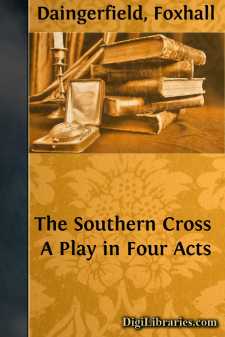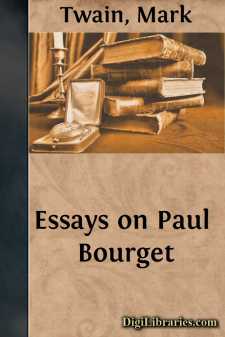Categories
- Antiques & Collectibles 13
- Architecture 36
- Art 48
- Bibles 22
- Biography & Autobiography 813
- Body, Mind & Spirit 142
- Business & Economics 28
- Children's Books 15
- Children's Fiction 12
- Computers 4
- Cooking 94
- Crafts & Hobbies 4
- Drama 346
- Education 46
- Family & Relationships 57
- Fiction 11828
- Games 19
- Gardening 17
- Health & Fitness 34
- History 1377
- House & Home 1
- Humor 147
- Juvenile Fiction 1873
- Juvenile Nonfiction 202
- Language Arts & Disciplines 88
- Law 16
- Literary Collections 686
- Literary Criticism 179
- Mathematics 13
- Medical 41
- Music 40
- Nature 179
- Non-Classifiable 1768
- Performing Arts 7
- Periodicals 1453
- Philosophy 64
- Photography 2
- Poetry 896
- Political Science 203
- Psychology 42
- Reference 154
- Religion 513
- Science 126
- Self-Help 84
- Social Science 81
- Sports & Recreation 34
- Study Aids 3
- Technology & Engineering 59
- Transportation 23
- Travel 463
- True Crime 29
The Southern Cross A Play in Four Acts
Description:
Excerpt
ACT I.
Outside the Stuart home, May, 1864. The large beautiful lawn of a typical Southern home. On the left and partly at the back stands the house, of colonial build, a wide porch running the entire length of the house, with three broad, low steps leading down to the garden. Many vines, mostly wisteria, in full bloom, cover the walls and some climb around the banisters. The porch has four white pillars reaching to the second story. On the right is a green garden bench, and at the back may be seen a road leading past the house, a low picket fence between many trees; box-bushes and shrubs are near the right. It is near twilight of an afternoon in May. On the right and through the picket fence a small gate leading to the garden and thence to the family graveyard. Over the whole scene there is a half look of decay: the grounds are not in order, the bushes are untrimmed, as though poverty had come suddenly to its occupants. At rise of curtain Aunt Marthy, an old negro mammy of the familiar Southern type, is discovered by the gate leading into the garden; in her hands she holds some roses and other flowers she has been gathering.
Marthy. 'Clare hit don't seem natural—it suttenly don't. Dis hyer place ain't what it was; look at dat fence and at dem bushes! It's gittin run down, dat's what's the matter; it's gittin run down.
[Enter Cupid from the gate at back, leading into the lane. He is an old negro of about the same age as Marthy. His clothes are very old and worn, yet there is a pathetic suggestion of neatness in his ragged dress.
Cupid. Marthy, is you seen dem chullen?
Marthy. Nor I ain't seen um since lunch. Mars Bev and Miss Fair don suttenly tek dis place since de war brek out. I hear um say dey gwine down to de mill.
Cupid. How dey go?
Marthy. I hear Miss Fair say she was gwine ter walk, and den Mars Bev say hit too far for her; dat she got ter ride de mule: and she up an tell him ef it too far fer her ter walk, she ain't gwine, 'cause it suttenly too far fer old Jack.
Cupid (indignant). Jack's er good mule yet, ef he is de onliest one we got lef. Somehow I don't feel exactly rite wid jes dem two hosses on de place sides dat ole mule; cose he's a good mule yet, onderstan; but den I can't get used to jes dem three. I often set and study 'bout dem hosses and wonder whar de is, and ef de soldiers treat um good and ef dey gits dey feed regular, and ef—
Marthy. Ef dey gits de feed regular hit more dan what we does. Since de soldiers bin comin' what wid de sewin' and de cookin' and gibin' way, I wonder dat we gits on er tall. Not dat I grudge hit ter um—law, no. Wid us got Mars George and dey cousin Mars Carter, and dars Mars Gorden same as one ob de fambily, to say nothin' ob Old Marster in de army.
Cupid. And dars Mars Bev, most pester his mar to def ter let him go; but cose dat chile he too young; he ant more'n fou'teen. But den I'm frade he gwine: fer ef dat chile set his head on er thing, he good es got it.
Marthy. Go on wid you! Dat chile ant no mo' gwine in de army dan what I is....












